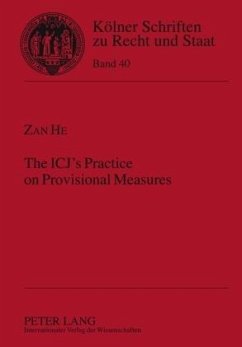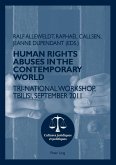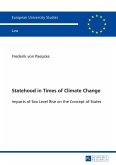This work studies the role of the International Court of Justice (ICJ) regarding the international dispute settlement and the maintenance of international peace and security by examining its practice on provisional measures. The author finds that the ICJ's practice on provisional measures differs from that of municipal courts, due to the necessity to respect the sovereignty of states. Furthermore, the Court attempts to play an important role in the international dispute settlement. The aim to maintain international peace and security is decisive for the Court to assign provisional measures. As shown by the Lockerbie cases, its power was to some extent paralyzed by the Council's breach of its authority. Without any coordinative mechanism within the UN system and the Council's self-restriction, provisional measures cannot be as effective as designated.
Bitte wählen Sie Ihr Anliegen aus.
Rechnungen
Retourenschein anfordern
Bestellstatus
Storno








